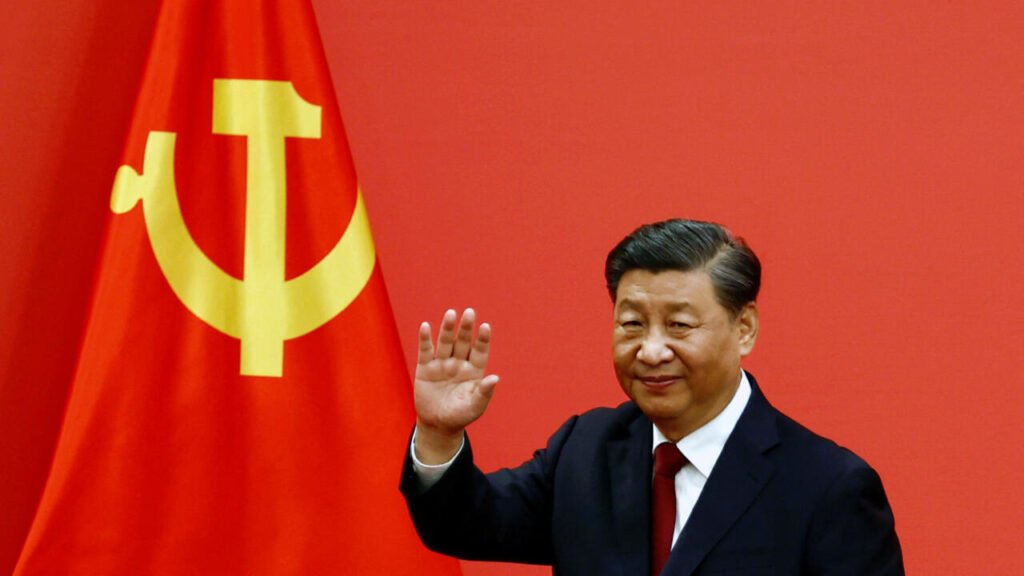In the labyrinthine corridors of Chinese politics, where opacity is the norm and speculation thrives, the prolonged absence of President Xi Jinping from public view has ignited a firestorm of questions. For a leader who has meticulously crafted an image of omnipresence and control since assuming power in 2012, Xi Jinping’s recent retreat from the spotlight is both unusual and intriguing. Is this a calculated move, a sign of internal strife, or simply a misinterpretation of routine governance? As an Indian journalist observing China’s political landscape, I delve into the implications of Xi Jinping’s vanishing act and what it could mean for China’s future and its relations with neighbors like India.

The Disappearance That Sparked Speculation
Xi Jinping, often described as China’s most powerful leader since Mao Zedong, has not made a significant public appearance for nearly two weeks as of July 3, 2025. This absence coincides with critical global events, including the BRICS Summit and heightened tensions in the Indo-Pacific region. For a leader known for his hands-on approach—whether addressing domestic economic challenges or projecting China’s might on the world stage—this hiatus is conspicuous. State media has remained silent, offering no official explanation, which has only fueled speculation about Xi Jinping’s health, political standing, or strategic intentions.
Historically, Xi Jinping’s public engagements have been carefully choreographed to reinforce his image as the unassailable “core” of the Chinese Communist Party (CCP). From inspecting flood-hit regions to delivering speeches at international forums, his visibility has been a cornerstone of his leadership. The current void, therefore, raises questions about whether Xi Jinping is deliberately stepping back or if forces within the CCP are constraining his presence.
A Pattern of Absence?
This is not the first time Xi Jinping’s absence has stirred debate. In July 2024, a brief gap in his public schedule prompted whispers of health issues or internal dissent, only for Xi Jinping to reemerge with a high-profile address. Similarly, in late 2024, his absence from a key military event led to murmurs of a rift with the People’s Liberation Army (PLA). Each time, the CCP’s propaganda machinery swiftly quashed rumors, portraying Xi Jinping as firmly in control. Yet, the frequency of these episodes suggests a pattern that cannot be dismissed outright.
From an Indian perspective, Xi Jinping’s absences are particularly significant given the ongoing border tensions along the Line of Actual Control (LAC). Since the 2020 Galwan clash, India-China relations have been fraught, with both sides maintaining heavy troop deployments in Ladakh. Xi Jinping’s personal oversight of China’s foreign policy, including its assertive stance toward India, makes his current low profile a point of strategic interest for New Delhi.
Internal Dynamics: Power Struggle or Consolidation?
One plausible explanation for Xi Jinping’s absence is an internal power struggle within the CCP. Xi’s unprecedented consolidation of power—abolishing presidential term limits in 2018 and securing a third term in 2022—has not been without critics. His anti-corruption campaigns, while popular among the masses, have alienated powerful factions within the party and military. Could these factions be pushing back, forcing Xi to retreat temporarily to manage internal dissent?
Another theory is that Xi is orchestrating a deliberate withdrawal to test the loyalty of his inner circle. By stepping back, he may be observing how key figures—such as Premier Li Qiang or PLA generals—navigate governance in his absence. This would align with Xi’s known penchant for strategic maneuvering, ensuring that no single individual or faction grows too powerful.
Alternatively, Xi’s absence could be a response to domestic challenges. China’s economy, battered by a property crisis, youth unemployment, and slowing growth, has strained the CCP’s legitimacy. Xi’s ambitious policies, such as the Belt and Road Initiative and the push for technological self-reliance, have faced setbacks, including international pushback and financial overreach. A temporary retreat could allow Xi to recalibrate his approach without the scrutiny of public appearances.
The View from India: Strategic Implications
For India, Xi’s vanishing act carries significant implications. China’s aggressive posturing along the LAC, coupled with its growing influence in South Asia through projects like the China-Pakistan Economic Corridor, has kept New Delhi on edge. If Xi’s grip is indeed weakening, it could lead to a period of uncertainty in China’s foreign policy, potentially creating opportunities for India to strengthen its position in regional forums like the Quad or BRICS.
However, a destabilized China is a double-edged sword. A leadership vacuum could embolden hardline elements within the PLA or CCP, leading to more aggressive actions along the border to project strength. Alternatively, a reformist faction, as some speculate, could push for a more conciliatory approach, potentially easing tensions with India. New Delhi must tread carefully, balancing its military preparedness with diplomatic outreach to gauge China’s next moves.

Global Reactions and the Silence of State Media
Internationally, Xi’s absence has not gone unnoticed. At the recent BRICS Summit, his non-attendance was attributed to “scheduling conflicts,” but the lack of a clear explanation has sparked debate. Leaders from Russia, Brazil, and South Africa expressed private concerns about China’s direction, given Xi’s central role in shaping BRICS as a counterweight to Western institutions. Meanwhile, Western media has speculated about everything from health issues to a military coup, though no concrete evidence supports these claims.
China’s state media, typically quick to counter rumors, has remained unusually reticent. This silence contrasts with past instances when the CCP flooded outlets with images of Xi meeting officials or inspecting projects to dispel speculation. The absence of such propaganda suggests either a deliberate strategy or an inability to control the narrative—both of which are unprecedented in Xi’s tenure.
Historical Parallels and the Road Ahead
Xi’s situation draws parallels with past Chinese leaders. In the 1970s, Mao Zedong’s declining health led to power struggles that reshaped the CCP. More recently, Deng Xiaoping’s retreat from public life in the 1990s marked a transition to collective leadership. Could Xi’s absence signal a similar shift? The CCP’s obsession with stability makes an abrupt leadership change unlikely, but subtle realignments within the Politburo or Standing Committee cannot be ruled out.
For now, the world watches and waits. Xi’s reemergence—whether at a carefully staged event or through a major policy announcement—will likely provide clues about his intentions. If he returns with a show of strength, it could reaffirm his dominance. If his absence persists, or if he reappears diminished, it may signal a new chapter in China’s political saga.
Conclusion: A Leader at a Crossroads
Xi Jinping’s vanishing act is more than a curiosity—it’s a potential turning point for China and its role in the world. For India, it underscores the need for vigilance and strategic foresight in navigating an unpredictable neighbor. Whether Xi is grappling with health issues, political rivals, or a calculated retreat, his absence challenges the narrative of invincibility he has cultivated. As the CCP navigates this uncertainty, the ripples will be felt from Beijing to New Delhi and beyond.
In a nation where information is tightly controlled, the truth about Xi’s absence may remain elusive. Yet, one thing is clear: in the high-stakes game of Chinese politics, even a leader as powerful as Xi Jinping cannot afford to disappear for long without consequences. As we await his next move, the question lingers—has China’s paramount leader lost his grip, or is this simply another masterful play in his long game?
also read : nothing OS 4.0: Faster, Smarter, and Packed with Glyph Matrix Magic!
Last Updated on: Thursday, July 3, 2025 4:58 pm by Siddhant Jain | Published by: Siddhant Jain on Thursday, July 3, 2025 4:57 pm | News Categories: News, Politics, Trending, Trending
